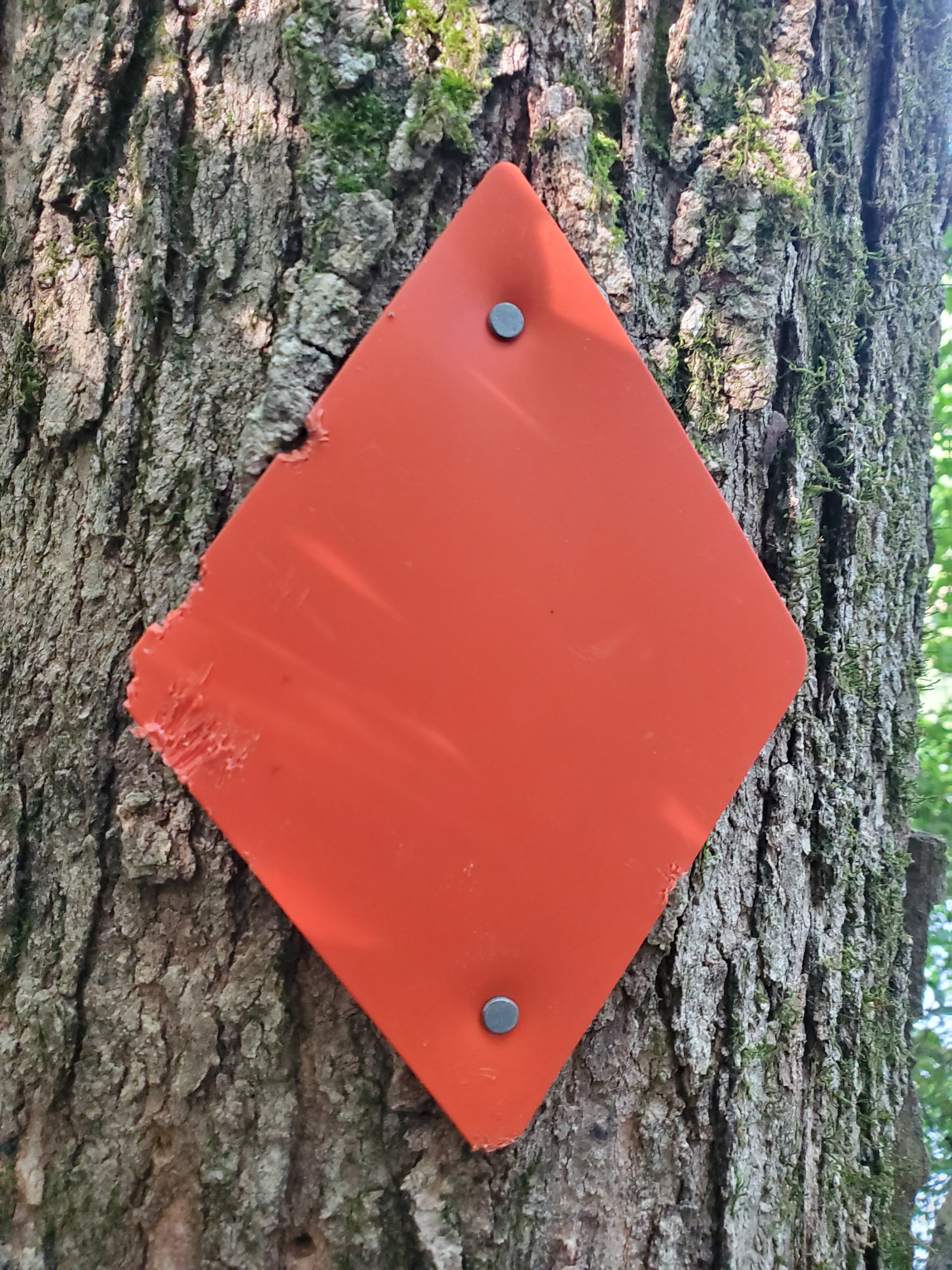Lot of stuff I’ve been reading say to buy around mid December when the seed catalogs come out, but which ones?
I usually just get seeds and plants from Home Depot, it’s done the job, but I want to find some nice heirlooms and/or varieties they don’t carry. Also screw “white label” seeds. But that’s another discussion.
So this last year I got some different seeds from Lee Valley, but I wasn’t a huge fan, still felt like Home Depot just under another name.
So what’s your guys favorite website or place to get seeds. And when do you find the best time to order.
Look up seed saver’s exchange. I usually just save my own seeds, it’s not very difficult for most plants. But that’s where I bought most of mine to get started.
Seconding seed savers exchange. Most (all?) of their seeds are open pollinated. For anyone who doesn’t know what this means, it basically means that you can save seeds to regrow the next year.
Many types of seeds that you can buy do not enable this because they aren’t true to seed, or in the case of some gmo plants, they might be infertile.
When a hybrid plant is made, the genes are basically unstable. Remembering back to learning punnet squares in biology class, the offspring (seeds) from a hybrid plant can have a different mix of genes from the parent plants. For example, your hybrid tomato bred from one parent that had disease resistance but bad tasting fruit and another parent that had good fruit but susceptible to disease would give you a mix of offspring that can be like either parent, the hybrid, or the worst of both parents. Sometimes, over time, you can pick only three “good” ones and make sure they are only pollinated by other “good” ones by bagging flowers and hand transferring pollen. With open pollinated plants, none of that is necessary.
Ummm… Boy… Deep breath
Zero GMO genes commercially available cause infertility. The only infertility GMO gene was developed by the USDA-ARS as a way to prevent the spread of GMO genes into the environment. Public outcry shot that one down, so now we have widespread GMO contamination in some species…
Some species hybrid production utilizes male sterility. For example hybrid onions utilized cytoplasmic male sterility. This is a naturally derived mutation that is passed on in the cytoplasm (mitochondria and chloroplasts). This DNA only comes from one parent an is an exact copy (put your punnet square away).
A different example of “sterile” hybrid is gynecious cucumbers. Cucumbers can be all female (gynecious) or monoecious (male and female flowers on same plant) . These are hybrids that are produced by by crossing two gynecious lines using silver thiosulfate to convert one parent to male bloom.
Both of these types will produce seed if crossed with fertile pollen from another plant.
Most hybrids can have seen saved from them except for triploids. Triploids like seedless watermelons are sterile because they can’t form gametes correctly. Diploid lines are crossed by tetraploid lines to created triploids. Triploids in nature is usually sterile (with exceptions of course like the the Amazon molly cause life finds a way).
An OP variety is a partially inbred population. In tomatoes for example. You can easily make these from a hybrid by saving seed for a few generations. The level of heterozygosity decreases by 50% every generation. So a F1 hybrid is 50%, F2 is 75% uniform, F3 is 87.5% uniform, F4 is 93.75%. This is where most OP varieties are. As tomatoes are mostly cleistogamous, no extra effort to exclude pollinators is needed
I was hoping someone more knowledgeable would chime in. Do you think it would be fair to say that for your average gardener, using OP seeds would make it easier to save them?
The process to save seeds is the same whether it’s a hybrid or OP in most species.
The difference is on the variation in the next years crop. By year 4 or 5 of self pollinating they have an OP (inbred). I honestly think more average gardeners should attempt some amateur breeding. We need more locally developed and adapted genetics. Since the environment, pathogens and pests are constantly evolving, we need to encourage our food species to evolve with them.
Plant breeders rely on landraces/wild types for genetics to breed new varieties. A successful breeder replaces the landraces in the commercial markets. They are dependent on the thing they destroy.
You might not know it, but if you purchased a pumpkin this fall, the genetics were massively influenced recently by an amateur breeder in Michigan. An experienced commercial breeder used his genetics to create many of the varieties on the market today (I chose the best and named most of them).
I’ve had a really great experience with Johnny’s Selected Seeds. I started ordering from them because I was doing an undergraduate research project, and they responded to my questions within a day with detailed answers and a couple pdfs. Great germination rates, and a good variety of seeds too. (also they ship to Canada!)
I have ordered as late as April. I just make sure to chuck my seeds in the fridge if I order during the winter
https://xerces.org/milkweed/milkweed-seed-finder
Use the map to find a supplier near you that cares about sourcing local milkweed. If they have that priority, chances are they will get a lot of other stuff right too.
I found https://sowtrueseed.com/ through that utility and I’ve been happy with the seeds and tools I’ve gotten from them.
I found out our local library has a seed bank. So that’s something I will be looking into participating in when it reopens in the spring.
A little bit specialized/niche, but my favorite is Kitazawa Seed. For more Western varieties, I like Fedco. I tend to order in late winter.
FYI The original owners retired a few years ago and the brand is now owned by True Leaf market. I bought from them before the switch but not yet from the new site.
I haven’t had any problems.
I’ve had good luck with Pinetree seeds. They have a nice selection and decent growing tips. I’ve been very pleased with everything I’ve purchased from them.
Bah, thanks for the suggestion, they don’t seem to ship to Canada though.
I do see they have a catalog to sign up for, so maybe I’ll peruse some websites and see which ones also do that.
I found a couple, but rather get word of mouth than rely on marketing.
Sow True Seed has been my go to for years. Lots of cool, new and old heirlooms to try. If ordering something transplants/bulbs/slips you need to do it months ahead of time, but their seeds are pretty much available all year.
Random small Etsy people who seem legit have been good to me. Recycled packaging, directly supporting a very small business, etc. has been nice.
These are all illegal operations FYI. They break international, national, and state laws meant to prevent the spread of invasive species and pathogens.
Fair point. Not all sellers are good, for sure. This does take some buyer responsibility. I do feel that buying something that I can reasonably tell is the seed I’m looking for, planting it in small containers to test that they’re as advertised, and then transplanting to my garden is acceptable. I have bought from bigger sellers and had nearly identical experiences as the small Etsy ones. I only buy from inside my country. Additionally, some of the small sellers actually are licensed. This is all much better than buying a burpee “pollinator/meadow” mix that’s just Siberian wallflower and Chinese stuff mixed in with 5-10% native aster.
So I guess it needs more context than simply “go buy from Etsy.”
Native American Seed Company, but they’re pretty specific to native Texas plants.
For veggies, I’ve had success with Baker Creek Heirloom Seeds.
Just a heads up Baker Creek has a dubious history of right leaning support and using their adopted Asian son as a prop to advertise Asian veggie seeds in their catalog until folks online asked about it. Just a lot of questionable behavior.
http://www.theredneckhippie.com/2019/04/baker-creek-seeds-supports-racism.html?m=1
https://www.reddit.com/r/gardening/comments/j1kqfp/controversy_with_baker_creek/
I remember reading about the Cliven Bundy thing a couple years ago and still don’t quite understand Baker Creek’s fault there. Dude’s a world-renowned watermelon farmer in addition to right-wing terrorist, and it doesn’t seem like Baker Creek did anything at all to support the man except ask him about growing watermelons
Cliven bundy has a proven track record of using whatever platform he’s given to promote vile extremist views. Baker creek giving him a platform to speak is either negligent, if they are claiming they never once googled his name, or an indicator of support for his views.
I lean towards the second interpretation. On the speaker agenda, he’s referred to as a “land rights activist”, indicating that that is a specific topic they knew he would discuss, and they didn’t just hear about him as a random watermelon farmer.
Looking at the speaker before him, too, they run a group that thinks you can just come down with a case of autism from eating GMOs and cure yourself with organic food, and they are also 5g conspiracy theorists. You don’t accidentally put those types of people together.
When called out about it, they basically defended their choice to invite him, even though they could have disavowed him.
Johnny Seed is solid.
Truly Medicinal for some more unusual items. She’s never sent me a bad packet.
Burpee is fine for seeds but I’d avoid any live plants or root starts from them.
Horseradish from Urban Farmer. Good stuff, reliable growth.
Wasabi from Oregon Wasabi. You know it’s genuine and the root starts are much easier to grow than seed.
True Leaf Market is wildly unreliable. I can get one perfect packet of seeds alongside a seed pack that is practically DOA. Bell peppers and cucumbers this last year, started in same conditions, had some mostly dead seed packets. 2 out of 3 bell pepper packets did not grow beyond 20%, while the third packet was at nearly 100%. 1g of pickle seeds at 10% germ with the second packet of pickle seeds at 80% germ. The Kitazawa seeds have been more reliable than the conventional seeds, with solid growth. The rest though? A roulette game.
If your in the northern hemisphere December is not a good time to purchase seeds.
It’s usually carryover from the previous season of southern hemisphere production.
Wait until February. That’s when the northern hemisphere production is available.
If you are in the southern hemisphere, August is your month.
Is my go to for natives. Search by region, bloom time, color etc. Order them in the winter for cold stratifying either direct in the ground or winter sowing in a container
Your dad
I can second Johnny’s seeds and have gotten quite a few good uncommon varieties from them.
There’s also MI Gardener that I’ve gotten several heirloom varieties for a very reasonable cost. YouTuber and Master gardener who eventually opened a physical store dedicated to teaching others how grow more plants than they kill.
I’ve also used Rare seeds for other less common varieties




